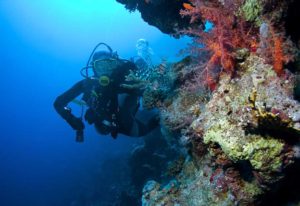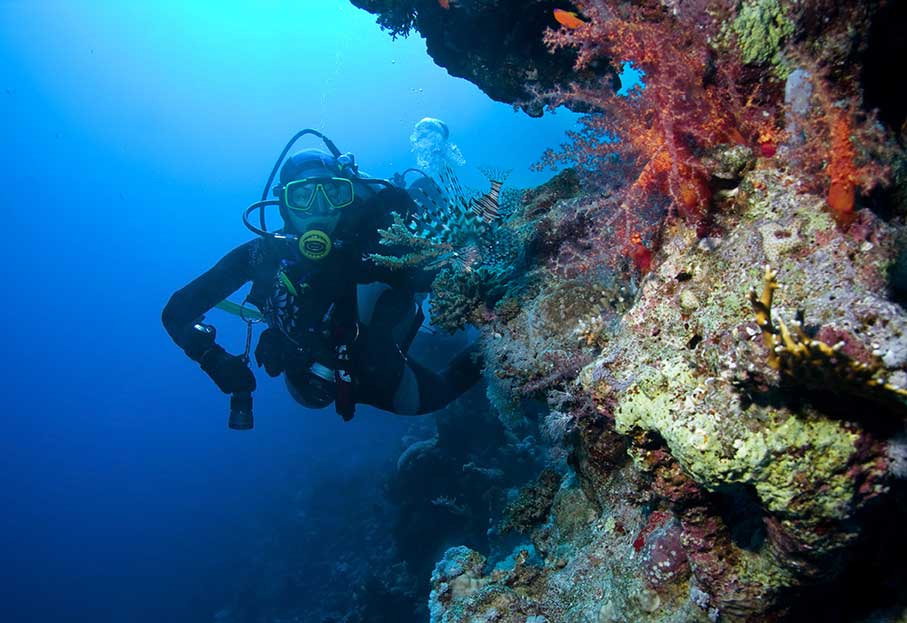Disclaimer: The information on our website is provided for general information purposes only. We make no representations or warranties of any kind, express or implied, about the completeness, accuracy, reliability, suitability or availability with respect to the website or the information contained on our website for any purpose. Any reliance on such information is therefore strictly at your own risk and we are not liable for any damages or losses arising out of or resulting from your reliance on any information contained on our website.
A marine biologist studies oceans and their organisms. They protect, observe, or manage marine organisms or animals, plants, and microbes. Marine biologists can hold many titles and specializations. For instance, they can manage wildlife preserves to protect aquatic organisms. They may also study fish populations or test for bioactive drugs. They also write scientific reports from their findings and get them published to educate others.
How to Become a Marine Biologist
A minimum of a bachelor’s degree is required to become a marine biologist. However, many employers prefer applicants to have a master’s degree specializing in marine biology and aquatic studies, and it is also becoming more common that employers want candidates to have a doctorate degree. Many universities and colleges offer marine biology programs; however, degrees such as biology, zoology, fisheries, ecology, or other animal sciences are common. Coursework usually includes classes in biology, chemistry, physics, mathematics, and statistics. Additionally, there may be training in laws and public policies.
Organizations such as the Association of Zoos & Aquariums, MarineBio, American Fisheries Society, and the Society for Marine Mammology are great places to start to explore this career field. Also, finding internships, volunteering, or part-time work at local aquariums, environmental organizations-if you live near marinas, beaches, lakes, or oceans, or even fisheries can be beneficial when entering this career field. Watch a video to learn what a marine biologist does:
Job Description of a Marine Biologist

A marine biologist observes and studies the animals and plants that inhabit the ocean. A marine biologist can have many specialized fields where each one carries its own title. However, typical tasks include studying marine organisms, collecting biological samples, analyze specimens or data, and writing reports. Most use instruments or technology devices to replicate, record, model, or monitor their studies.
In zoos or aquariums, they take care of marine animal life and observe their reactions to the environment and their behavior patterns. They assess marine animals needs to be sure they are healthy and thriving.
Some marine biologists may scuba dive for specimens. They may study larger marine animal life such as sharks, whales, seals, or other sea life that is not so noticeable, like the sea’s coral.
Some marine biologists may specialize in studying marine toxins’ complex chemical makeup and their impact on the environment, or how the weather impacts sea life. These marine biologists usually work with other scientists, engineers, technicians, or environmental agencies. They would consult and work to rebuild damaged marine ecosystems, advocate or help with environmental compliance or help at fisheries management or the coast guard. Some marine biologists even teach at a university or college or act as consultants for various agencies, like the government.
Becoming a marine biologist can be competitive, but gaining hands-on experience before graduation can be helpful. Many work full time and a variety of shifts. They often work in the field and are outdoors on ships, beaches, or even at salt marshes when conducting scientific research. Some marine biologists may also conduct studies and research in a laboratory to observe and record animals in tanks or view tiny organisms under a microscope. Check out the career video to see first hand what a marine biologist day looks like.
Article Citations
Bureau of Labor Statistics, U.S. Department of Labor, Occupational Outlook Handbook, Zoologists and Wildlife Biologists.
National Center for O*NET Development. 19-1020.01. O*NET OnLine.

